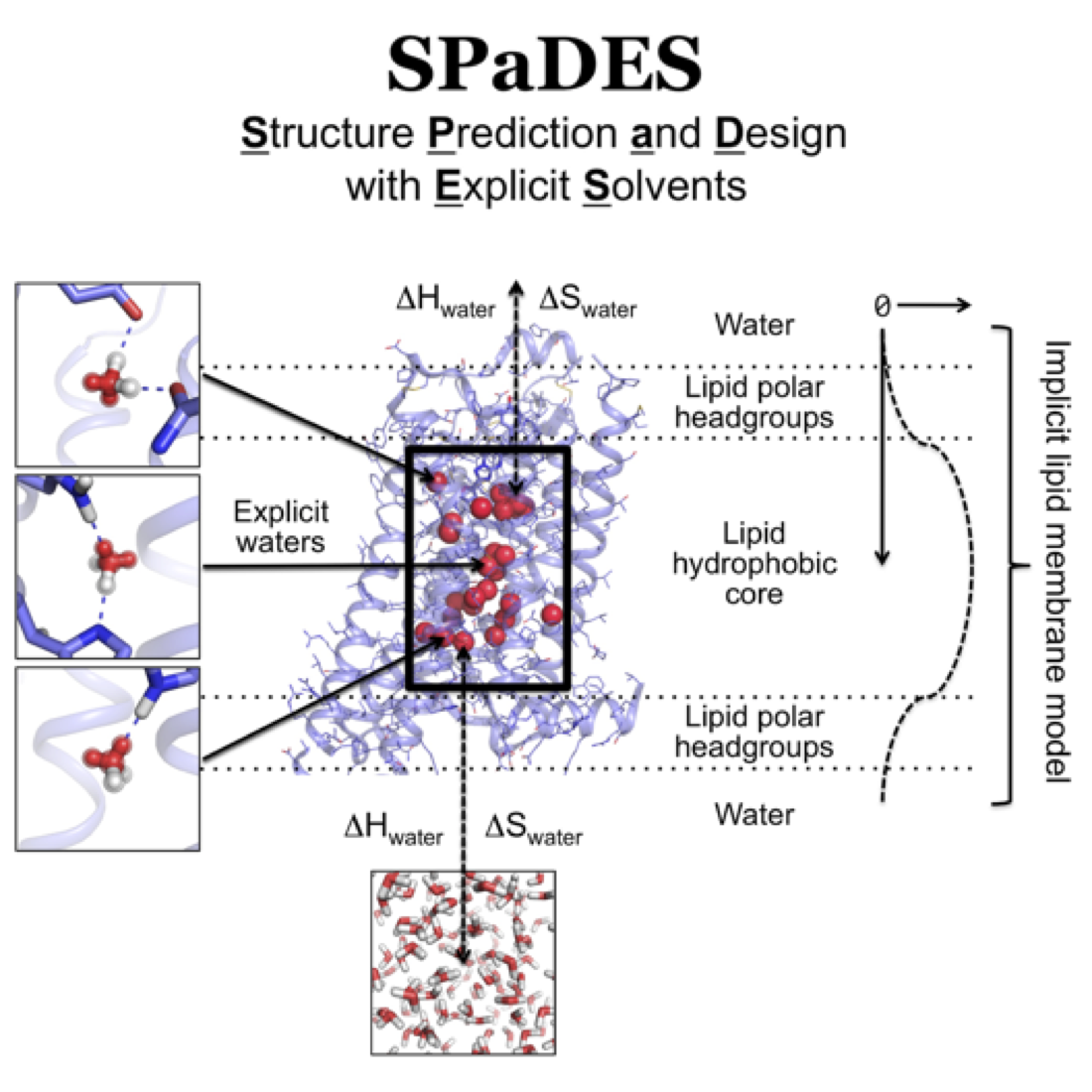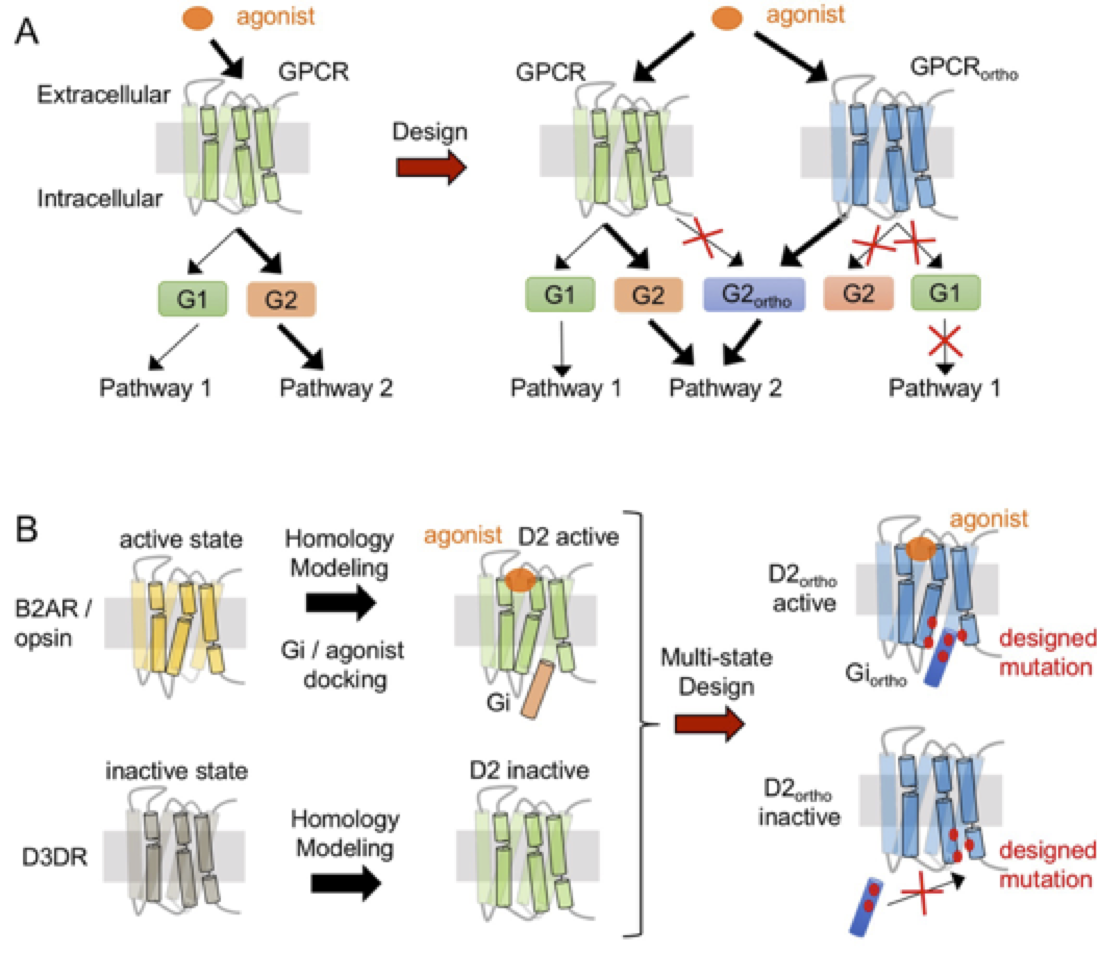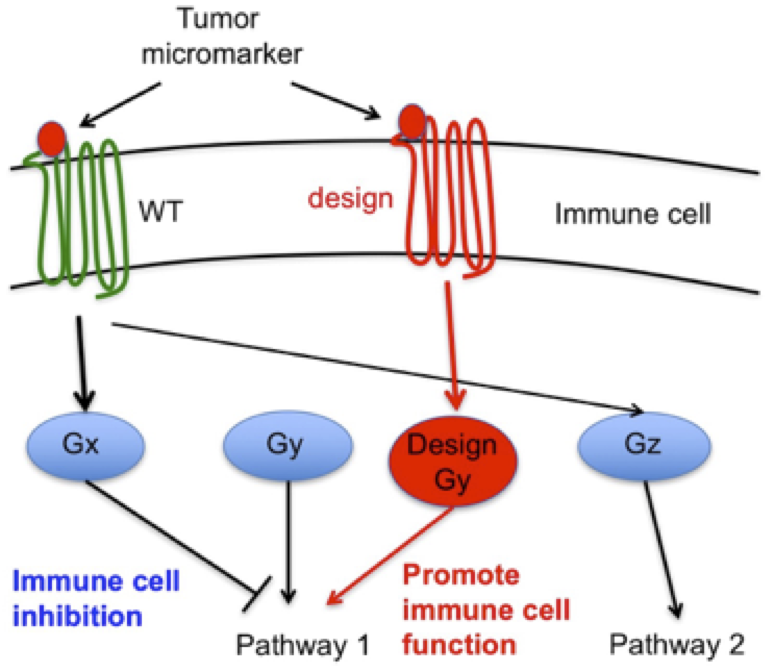Our work is highly interdisciplinary and involves the following research areas:

For more information, please check the web pages relative to each research area.
Computational Biology area

Membrane proteins perform critical functions in living cells and represent close to 60% of drug targets, but remain difficult to study experimentally. To address this problem,
(1) We develop computational methods to model how membrane proteins bind to drugs, lipid and peptide molecules that regulate their function.
(2) We analyze genome sequences and protein structure databases to uncover universal design principles of membrane protein structures and functions.
(3) We predict the effects of genetic variations on membrane protein structure and function for precision personalized cancer medicine.
Further reading:
Chen et al., Plos Comp Biol 2014; Wang et al., Nat Comm 2015;
Feng et al., Nat Chem Biol 2016; Lai et al., Structure in press
Protein design area

Computational protein design mimics natural evolution in silico by exploring rapidly an immense number of protein sequences and structures that would be experimentally intractable. It provides a powerful approach for creating proteins with novel functions not found in nature. We typically cycle between calculations in our dry lab and experimental validations in our wet lab using in vitro biochemical, biophysical and cellular assays. We complement and refine in silico design calculations with experimental directed evolution approaches. We also collaborate with external laboratories expert in structural biology (S. Prosser, O. Ernst, L. Kay at U Toronto), cellular signaling (M. Bouvier at U Montreal) and protein evolution (E. Procko at U Illinois Urbana Champaign).
(1) We design protein interactions and networks to reprogram cellular functions.
(2) We design membrane receptors with novel signaling functions.
Further reading:
Chen et al., PNAS 2012; Senes & Barth, Nat Struct Mol Biol 2016; Feng et al., Nat Chem Biol 2017.
Therapeutic systems / cell engineering area

Immunotherapy has the potential to significantly impact treatment outcomes of cancer patients. We strive to design protein systems that redirect immune-inhibitory tumor microenvironment stimuli into an activating/proliferative response in tumor-specific T cells through engineered receptors in collaboration with experts in immunotherapy at the Ludwig Institute for Cancer Research in Lausanne.
Further reading:
Arber et al., J Clin Inv 2015;
Arber et al., Curr Opin Biotechnol 2017.